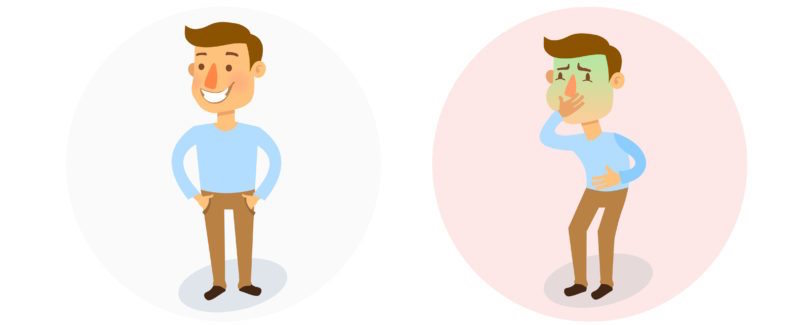

Have you started following carbohydrate-restricted dietary recommendations and are unsure if everything is in order? Questions and answers about the first stage of keto-adaptation can be found below.
The answer is simple and doesn’t mean that you have to do something wrong. First and foremost, it should be remembered that our bodies have traditionally obtained energy from a different source, primarily carbohydrates, so any changes in the amount of energy we consume are justified by the adaptation process. Remember that you’ve spent your entire life relying on other energy sources, and a few days isn’t a long time, so give your body a little more time to adjust to your new eating habits. Furthermore, keep in mind the following golden rule:
When you’re in trouble, reduce your carbohydrate and protein intake while increasing your fat intake.
It’s a mistake to assume that the fat you consume is unhealthy for you. You may be feeling this way because you’re eating too much vegetable fats like unsaturated fatty acids, coconut oil, or pathogens that died from a glucose cutoff (e.g. Candida albicans).

If the problem persists, i.e. you have symptoms for several days in a row (which is highly unlikely! ), you can increase the amount of protein you eat while reducing the amount of fat in your diet to a ratio that will not cause you any discomfort. The next step will be to gradually return to the previous proportions in order to achieve ketosis.
There are two schools of thought on keto-adaptation: a strong start and a gradual start. In the case of the first method, you will undoubtedly achieve a much faster effect and enter ketosis much more quickly. On the other hand, you can rely on gradual changes if you’re only interested in a high-fat ketogenic diet and not necessarily rapid results in terms of weight loss, among other things.
There’s a much lower chance of stalling with a strong entry, which means the carbohydrates we eat keep us from reaching full ketosis (there are too many of them). However, cortisol is activated when a feeling of exhaustion occurs (at the same time there is not enough of them). Switching to a fast keto-adaptation diet is therefore advisable.
Receive tips, articles and all the goodies absolutely free, straight to your inbox!